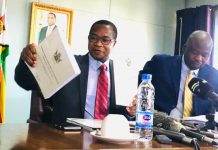By Helen Lubamba
Successful financing of developmental project such as hydro-power plants requires the willingness to invest and dream to grow the sector for the future.
Developing both social and economic infrastructure improves not only the quality of people’s lives; it also opens up the country to the outside world, and allows trade and commerce to flourish.
Zambia’s energy sector relies on hydro-power, which accounts for 78. kuwait casino 5 percent of supply, and the Kafue River is one of the major sources of the country’s power generation. With rising demand due to economic activities, the construction on a new hydro-power plant is vital to provide much-needed power to the nation. The power supply shortfall is evident to all.
We are all watching closely as work nears completion on the first phase of the Kafue Gorge Lower hydropower project. With it comes the promise of reduced load-shedding and the economic, social and personal benefits that brings. كاس امم اوروبا 2024
The country has the potential to generate over 6000MW of power, well above the current 2000MW 2800MW installed capacity. This potential can be achieved only if there is increased public and private sector investment (PPI) in infrastructure development.
The Seventh National Development Plan (7NDP) demonstrates Government’s determination to deliver improved infrastructure to facilitate economic activities that support GDP growth and improve socio-economic opportunities in the country. العاب لكسب المال
When you put up a power plant, you generate not only employment directly through construction and operations at the power plant, but also create an industrial base around the plant that exploits the energy being produced.
This creates a multiplier effect where new businesses emerge, resulting in fresh employment opportunities for local people.
Building power plants also means the country’s power supply improves and a reliable power supply is key to sustainable development, because it creates an environment for investment.
If we are to achieve our dream of having an industrialised economy, we need to have sufficient and reliable power, hence the need for improved investment in the energy sector. Steady energy production is a key component of sustainable development.
It is time to strengthen our regional electricity strategy as a country, to diversify our sources of energy and build open access to reduce dependence on single off-taker, ZESCO. With the extensive power generation pipeline earmarked for development and opportunities being realised in developing alternative energy supply, we can also build the capacity to sell into the Southern African Power Pool (SAPP).
Financing Relationship
Government remains the largest participant in infrastructure growth initiatives as it strives to develop the economic base. However, there is a need for strong support from the private sector, particularly the banking industry, to lift some of the strain off government particularly in the current economic climate.
In recognising this, Standard Bank Group, parent company of Stanbic Bank Zambia, in partnership with the African banking giant’s largest single shareholder, ICBC partnered with Government through ZESCO in constructing the 750MW Kafue Gorge Lower (KGL) power plant project worth over US$2 billion.
Financing large projects such as Kafue Gorge Lower requires in-depth analysis of the political, economic, social, technological, ecological and legal environment of a project to have a full understanding of the viability of the project and its socio-economic benefit to the nation and its people.
Commercial banks play an important role in financing such development projects, providing long-term finance to address great challenges such as load-shedding, and promoting industry jointly with public institutions.
Stanbic Bank is playing a major role. The bank already has a significant impact on Zambia’s infrastructural development and the associated industries linked to that development, which drive socio-economic development.
The road ahead
Over the last 60 years, Stanbic Bank has supported investments in massive infrastructure development spanning a wide range of sectors that include energy, agriculture, housing, mining, ICT and retail. This has been achieved by introducing banking solutions specifically created to support infrastructure investment by both small and large industry players.
We believe in Zambia’s growth potential and are committed to partnering the government and other stakeholders in realising this potential by providing fresh solutions to the country’s needs in terms of financing developmental projects.
For Zambia to realise its full development potential there is need for more investment in economically relevant infrastructure. More private sector firms need to step up to the challenge and play their part in the country’s development agenda because Zambia is our home, we must drive her growth.
It Can Be!
Helen Lubamba is Head Corporate and Investment Banking at Stanbic Bank Zambia













